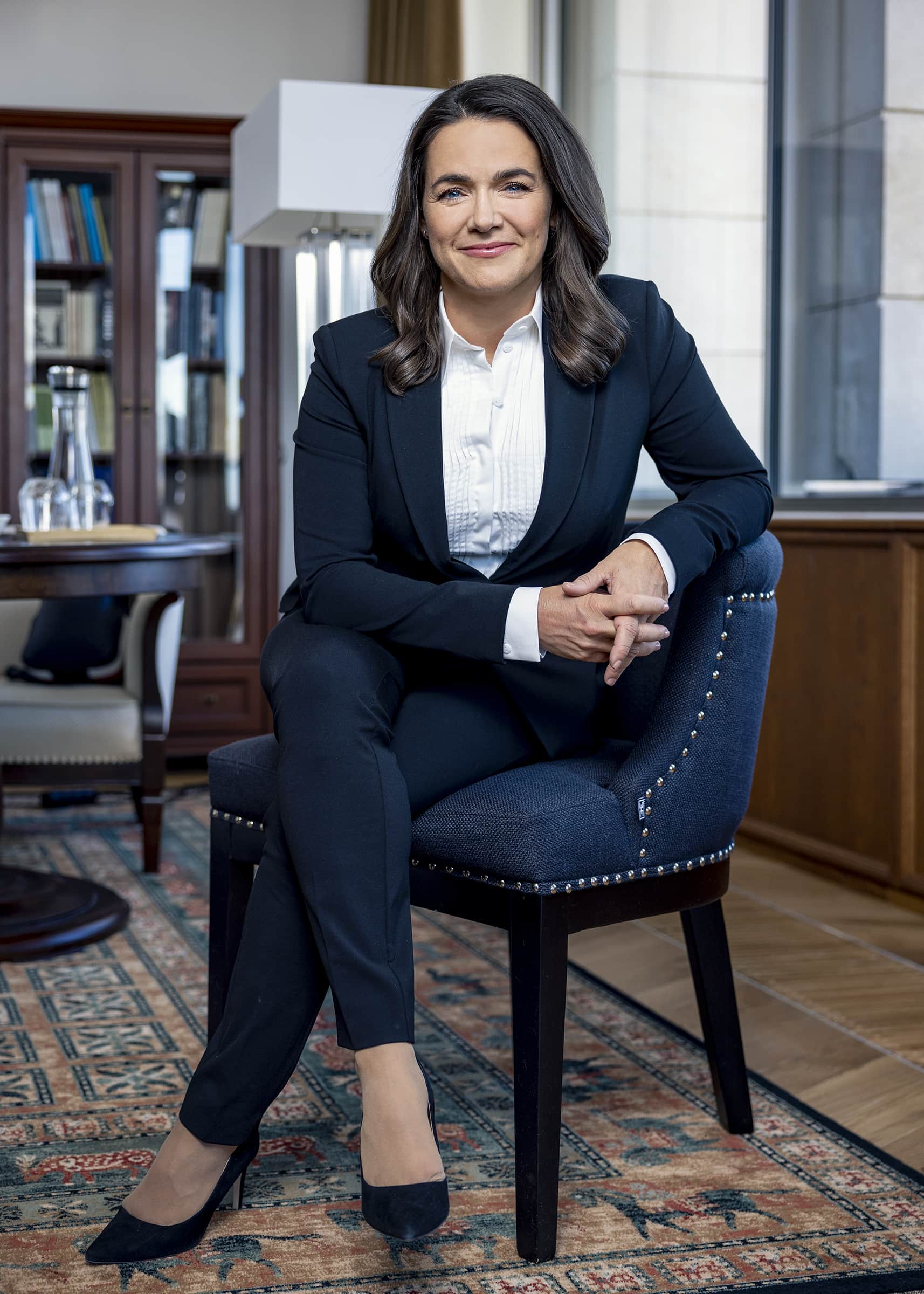
The Hungarian Parliament elected Katalin Novák president of Hungary on March 10, 2022. The country’s first female president, Novák is the former minister and collaborator of Viktor Orbán. Her achievement also marks the first time that such a young person has taken on this responsibility—Novák is not yet 45 years old.
The Hungarian Constitution stipulates that the election of the President of the Republic be carried out by a vote of the deputies. Since Viktor Orbán’s party, Fidesz, has a parliamentary majority, Katalin Novák’s election was taken for granted. She announced her candidacy on 21 December 2021, and since that date, she was confident of becoming the new president after President János Áder, one of the founding members of Fidesz, completed his term. She will take office on 10 May 2022.
Novák, the former minister of family policy, won the election by 137 votes to 51 against her opponent, the economist Péter Róna. Róna was the candidate of a heterogeneous alliance, United for Hungary (Egységben Magyarországért), which brought together the extreme Jobbik party as well as the liberals and ecologists.
The opposition attacked Novák in particularly harsh terms. Orbán’s opponent Péter Márki-Zay called her “unfit” for the job, saying she was too close to the current prime minister.
Novák defines herself both as an economist and a diplomat. She was appointed state secretary for Family and Youth Affairs in 2014, before becoming a full minister in October 2020. She is also vice president of the Fidesz party in charge of Foreign Affairs.
In her introductory speech, Katalin Novák accentuated the theme of motherhood and family as the signet of her leadership. Speaking for herself, she stated that getting married and founding a family “were the most profound decisions of [her] life,” words brought to life when the new president arrived at Parliament accompanied by her husband and three children. Refuting the codes of militant feminism, Novák highlighted her identity as a woman and mother as decisive assets in politics:
We women, raise children, tend to the sick, cook and work for two if necessary, earn money, teach, receive Nobel prizes, and clean windows. We know the power of words but are able to remain in the background and remain silent when it comes to that. And we protect our families when they are threatened, even more fiercely than men. I wish to be a good President of Hungary not despite, but rather because of, being a woman.
Novák went on to highlight her core values: the sense of commitment and fidelity, the search for concord and peace in all situations, and the transmission of life. Given the difficult context of the war between Ukraine and Russia, Novák’s calls for peace were numerous throughout her speech.
Novák intends to turn her youthful age into a strength. Born in 1977, she does not belong to a generation that was entirely shaped by Soviet tutelage. She claims to be resolutely European, even as she cultivates a nuanced distinction from Western Europe:
We did not have to learn what it was like to live under Russian occupation but were given an opportunity to learn what it means to be part of Europe “in instinct, blood, pain and passion.” Many of us have studied and lived in Western Europe. We do not wish to mimic that world, but they have some good things that we should adopt.
At the end, Novák was keen to highlight her Christian faith, which she sees as a strength in her political commitment:
Removing the cross from my necklace is not the way for me to represent those of other faiths; it is by holding it tightly to my heart and drawing strength from my belief that I will have understanding for others.
She intends to retain her Christian identity in the public arena, as a guarantee of understanding and openness to others.
Internationally, Novák reserves a special appreciation for Hungary’s neighbour Poland, a country that shares with Hungary its resistance to the ideological and centralising excesses of the European Union.
With a referendum on child protection due to be held in Hungary in early April, along with parliamentary elections, the election of Katalin Novák is a clear signal from Orbán’s government for requested continuity—political continuity in the service of families, and for Hungary’s demographic revival.
